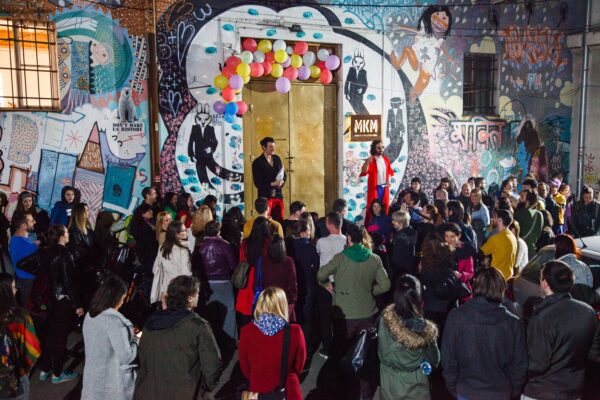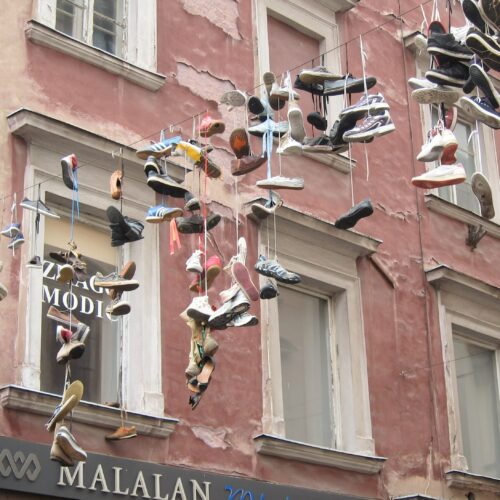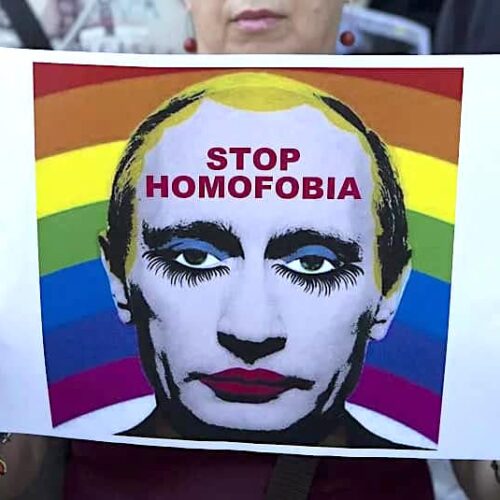Magacin (serbian for ‘warehouse’) is a cultural and social center and it is a resource managed by the community of users (its Assembly) according to the commonly established rules and principles.
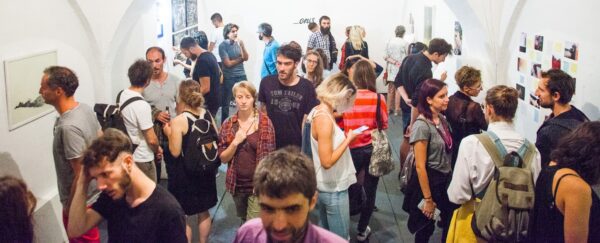
Magacin is not defined by a rigid programme or curatorial concept, but nourishes and supports a wide range of contemporary creation programmes, as well as socially responsible initiatives that act in the public interest and in accordance with the values of Magacin. Their community is comprised of numerous organizations, informal groups and individuals in the fields of contemporary culture, urban development, housing, environment and sustainable development, human rights, education, media, and similar. The center is governed horizontally through a managing body such as the Magacin Users’ Assembly that manages the space and makes decisions regarding Magacin’s activities, its development, regular maintenance, conditions of use, collective actions and other topics important for the operation and functioning of the space.
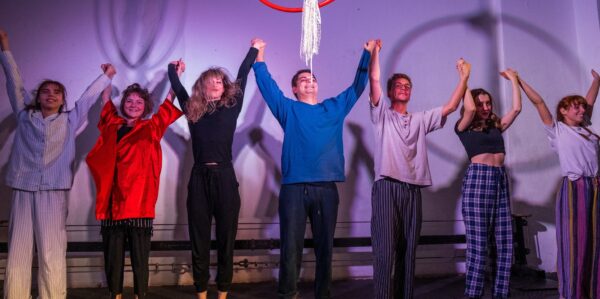
Given that the space is being used illegally, because the contract with the city was never signed, there is a justified fear of possible eviction. That’s why it was decided in 2014 that the method of action would be “open it, to protect it“. Therefore, the Open calendar model was established and through this model, Magacin became available free of charge to hundreds of users on a daily basis. The Open calendar allows all users (no matter whether they have the status of regular or new and occasional users) to have the same rights and conditions to use the space. The Regular users are members of the Assembly – organizations, collectives and individuals involved in decision-making, use space regularly, have direct access to the Open calendar, and participate in the maintenance of the space. New and Occasional users are more interested in occasional use of the space than in being involved in the decision-making process, although the number of those who want to become members of the assembly is increasing, which is also foreseen by the model and generally very welcome. Regular Users do not have a preemptive right to use Magacin.
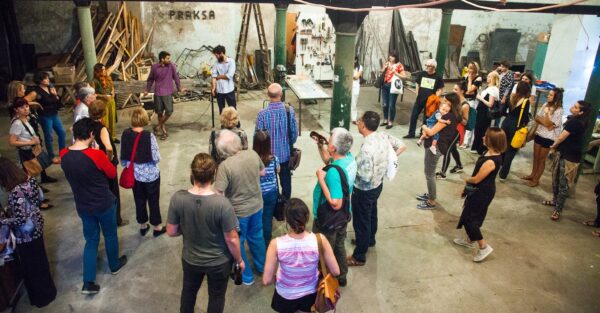
Magacin was founded 16 years ago and in the last 8 years has been successfully operating according to the Open calendar model, which created conditions for connecting social and cultural practices and struggles, and initiating the issues of wider significance to the community. Through a unique model it enabled new forms of cooperation, solidarity and resilience necessary for the transition towards a just and progressive change.
The number of users of Magacin has grown rapidly, as a result of: 1) governing the space on the principles of horizontality, democracy and active participation; 2) creating decent working conditions; 3) openness and inclusivity, as it annually hosts more than 5000 usages by over 100 different organizations and individuals. The presence of a large number of users and their programs significantly contributes to the cultural offer of the city, overall emancipation and empowerment of individuals and society, working towards bringing about a major systemic change.
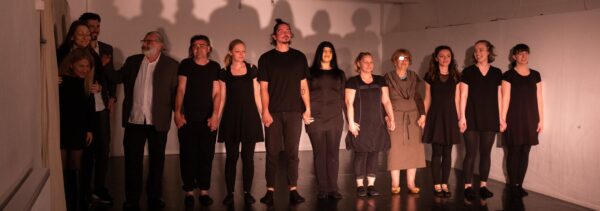
Magacin operates on voluntary work from all the users, who are gathered around the idea of commoning, social diversity, mutual cooperation, solidarity and tolerance, mutual trust and responsibility. Given the modest resources, Magacin is working on a model that would enable the sharing of time and space in using the resources, maximizing the benefit for all (potential) users. In this regard, the basic goal of the model is defined as enabling all users to have equal conditions of use, equal chances to participate and equality in decision-making (Assembly). All the users, from the first that initiated the space, to those who formed the initial Open Calendar model, and are now still here, to those who have just joined, have worked and still work on every aspect of the functioning of the space voluntarily, guided with the idea of a collective good. Firstly, Magacin is financed through small scale personal donations, from all its users and audiences, as well as those who wish to donate but do not use it as frequently – friends of Magacin. The amount of donations has no influence on any privileges or benefits involving the management, use, and appropriation of Magacin’s resources.
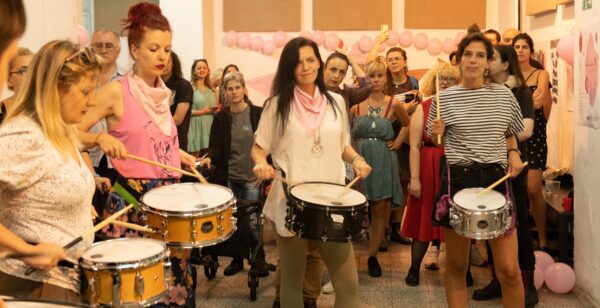
Some of the users also fundraise independently for the work and programs of their organizations and contribute financially and with voluntary work to the running of the Center.
Social-cultural center Magacin collaborates with a wide community of formal and informal organizations, upcoming social movements and groups with a lack of space to produce and showcase their programs ranging from arty to highly socially engaged addressing the problems of homeless people, workers rights, migrants, people with disabilities etc. But, more importantly, our community is a prime example that an egalitarian and horizontal organization can be functional with all decisions happening on monthly assemblies and with all the roles being rotational without a single permanent employee.

Magacin can be seen as a paradigmatic example of urban commons – it is a resource managed by the community of users according to commonly established rules, principles and values. Due to its openness, Magacin is generating increasing interest as a model that has outstanding transformative potential and as a way to respond to demands for greater democracy. Social change is the basis of Magacin’s work and, for this reason, programs and activities for the benefit of a larger group of people and society as a whole must be nurtured, i.e., Magacin sees the primacy of public good over particular and private interests as the basis of the change necessary for society as a whole. The core values of this space are human freedoms and rights, social diversity, mutual cooperation, solidarity and tolerance, transparency, mutual trust and responsibility.
